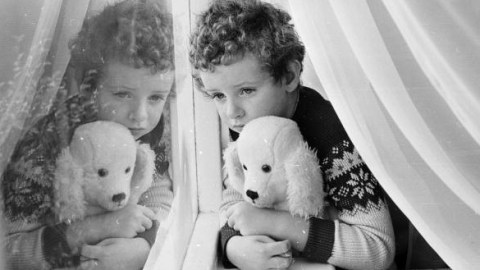Help A Depressed Kid from Becoming a Depressed Adult by Doing This

Life is often unfair, with some people seemingly getting more than their share of hard times. As adults, we’re (generally) better equipped to handle stress and trauma than children. But what happens to the brains of kids that face enormously difficult challenges? A new study, published in JAMA Pediatrics, indicates it changes their brains and makes them more susceptible to developing anxiety and depression later in life.
The study observed about 500 boys at various stages of their lives. Those who faced stressful events such as death of a parent, poverty, or instability at home, had notable differences in gray matter than those who did not face such adversity. There was lower gray matter in the area of the brain that handles emotion, decision making, and empathy; and increased gray matter in the area that handles remembering life events. They also had a greater tendency to internalize their emotions.
The Adverse Childhood Study found that survivors of childhood trauma are up to 5,000 percent more likely to attempt suicide, have eating disorders, or become IV drug users.
Young children (usually under six) tend to internalize the events around them, believing that they cause everything that happens. That’s why so many young children believe they are the reason their parents divorced, or feel responsible for a parent’s death — little kids don’t understand causality, and assume they are the catalyst for everything. So if a traumatic event occurs, or a stressful situation is recurring, it makes sense that they would internalize those experiences and believe, even on a subconscious level, that it is their fault.
Erik Erikson developed a theory of psychosocial development that stated that around ages three to five, kids are exploring their environment with the central question, “Am I good or bad?” It also makes sense, then, a feeling of wrongness or of “I’m bad,” would develop if we don’t understand causality yet. As we replay the events in our head, more energy goes to remembering them and less energy goes to skillfully processing them.
When we can share our experiences, no matter what our age, it helps us regulate our emotions and creates feelings of connectivity, trust, and belonging. You don’t have to have a Ph.D. in psychology; you just have to be an attentive listener and mirror back the emotions.
Kids who can’t process their emotions healthily are only going to continue to internalize the negative feelings and negative self-image, and eventually when they are teenagers and adults, they are going to be depressed. So what’s the solution? How can we help these children make sense of heavy life events? How can we take some of the confusion and self-blame away and focus on creating healthy processing? The doctors in the JAMA-published study recommend talking through it.
When we can share our experiences, no matter what our age, it helps us regulate our emotions and creates feelings of connectivity, trust, and belonging. You don’t have to have a Ph.D. in psychology; you just have to be an attentive listener and mirror back the emotions. Sometimes giving someone our full attention is the most generous thing we can do. And in this case, it can help prevent a child from growing up into an anxious and depressed adult. Put down your devices; be with each other. If you know a kid is going through a hard time, be present for them. Trust me; there’s not an app for that.
—
PHOTO CREDIT: McCarthy/Hulton Archive
Lori Chandler is a writer and comedian living in Brooklyn, NY. She has been published in The New York Times and on CollegeHumor. You can follow her on Twitter @LilBoodleChild to keep up with her latest pieces, performance dates, and wry observations.





